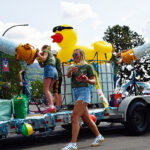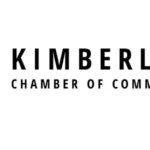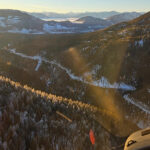Home »

Fees and rental charges set for groundwater users
In a bid to effectively manage British Columbia’s water resources the provincial government Feb. 5 introduced a new fee and rental schedule for groundwater users.
 The new fee and rental rates will only recover the costs of implementing the new Water Sustainability Act (WSA) including, for the first time, groundwater regulation. Unlike surface water, groundwater use has not required permission or payment of fees and rentals, a Ministry of Environment (MOE) press release noted.
The new fee and rental rates will only recover the costs of implementing the new Water Sustainability Act (WSA) including, for the first time, groundwater regulation. Unlike surface water, groundwater use has not required permission or payment of fees and rentals, a Ministry of Environment (MOE) press release noted.
Regulating and charging for groundwater use will correct this imbalance and further government’s ability to sustainably manage water for future generations. Users of groundwater will require a water licence and will be required to pay water fees and rentals. The exception is that individual household wells throughout the province will not be licensed or charged, MOE outlined.
Users of groundwater will also have the same access rights and responsibilities as individuals who obtain their water from surface sources.
This includes assurance their rights are considered should any conflict over water uses arise. Groundwater and surface water are one interconnected resource and need to be managed as such. The new WSA allows for this.
“British Columbia is blessed with an abundant water supply that our government is committed to preserving for future generations. The new fee structure will ensure fairness and affordability are cornerstones of our modernized water legislation,” stated Mary Polak, Minister of Environment.
Columbia River-Revelstoke MLA Norm Macdonald agrees that managing water is vital for the province but sees the new legislation as an example of big business getting favour over the individual.

“Water is a vital resource that we have to manage well. It is easy to take water for granted because here in British Columbia it appears to be so abundant. The new legislation was a long time coming, and it is very limited in scope. And there are still major issues with how these fees will be applied,” Macdonald said, adding, “The fact is that this legislation does not ensure long-term protection of our water. And British Columbian’s are not getting full value for the water being used by big industry.
“Individual water users will pay much more per litre than mining, oil and gas, or water bottlers under this legislation. A water bottler, for instance, will pay around $6.25 for an Olympic-size swimming pool worth of water. Few would find that to be fair,” he told e-KNOW.
The MOE press release points out “water bottling will be charged at the industrial rate of $2.25 per 1000m3-the highest rental rate in the new schedule.”
Across Canada water rental rates vary considerably, from $70 per 1000m3 in Quebec and over $140 in Nova Scotia for some purposes. B.C.’s new rental rates range from $.02 to – $2.25 per 1000m3 and will continue to be among the lowest in the country, taking effect in 2016 when the new WSA comes into force, the MOE press release stated.
This is the first update to the water fee and rental structure since 2006 in B.C.
Highlights of the new rate structure include:
* Homeowners with wells will be exempt from licensing and fees.
* Households supplied by municipal water systems may pay $1 to $2 more per year for their water.
* Surface and groundwater users will pay the same fees.
Extensive public consultation, including with user groups, helped to determine the new rate structure. In March 2014, the Ministry of Environment released a discussion paper, Pricing B.C.’s Water, which generated over 130 submissions and comments from the public and user groups. A consistent message from British Columbians was that water is undervalued.
The new Water Sustainability Act was passed by the Legislature in May, 2014, replacing the current 100 year old Water Act which was not designed to address today’s water issues.
Domestic household groundwater refers to water that is self-supplied to provide household needs such as a garden and domestic animals. There are an estimated 80,000 homeowner wells in B.C.
e-KNOW







